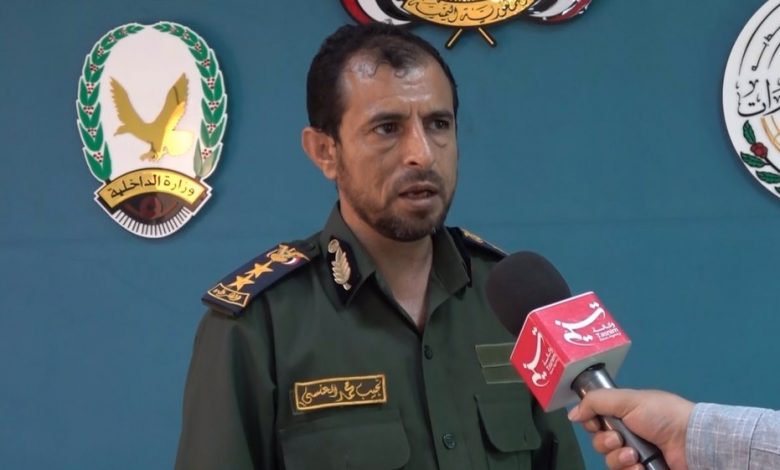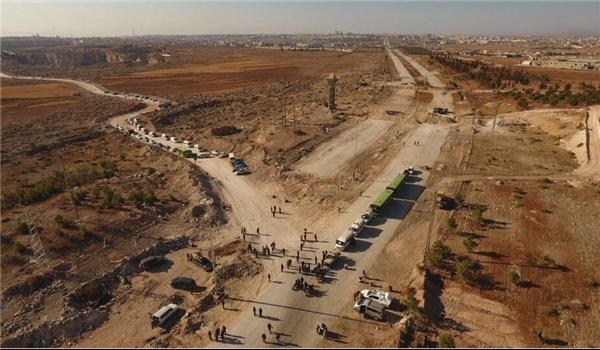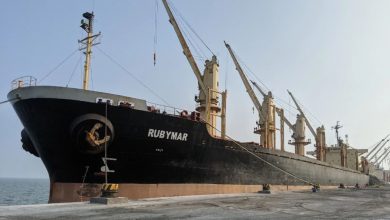Yemen’s intelligence agencies bust members of Israeli espionage network

Yemeni intelligence agencies have identified and arrested members of an Israeli espionage network involved in gathering intelligence about Yemeni missile and drone capabilities.
Colonel Najib al-Ansi, head of the Yemeni war media, was cited by Iran’s Tasnim News Agency as saying on Friday that the arrests took place as Yemen’s military started the fourth phase of its retaliatory attacks on Israeli-linked shipping in support of Palestinians amid the regime’s ground invasion of the southern Gaza Strip city of Rafah.
Ansi described the network as a “Zionist-American espionage cell” that was dismantled on Yemeni soil simultaneous with the country’s pro-Palestine attacks after Operation al-Aqsa Storm in October last year, the largest Palestinian military attack against the occupied territories in decades.
“At the same time as the Yemeni armed forces entered the battle of Al-Aqsa Storm, a network of mercenaries was activated on the western coast of Yemen under the guidance of an Emirati intelligence officer to identify the missile firing points and the deployment of the Yemeni navy and provide the American and Israeli forces with the intelligence,” Ansi said.
Tasnim cited experts as saying that the success of Yemen in supporting the Palestinian resistance stems from the dominance and coordination of the intelligence, security and military apparatus of the Arab country against the US, UK and Israeli military coalition in the Red Sea, Arabian Sea and Bab el-Mandeb Strait.
In a televised speech on Thursday, Yemen’s Ansarullah leader Abdul Malik al-Houthi said the country’s forces will target ships of any company related to supplying or transporting goods to Israel regardless of their destination as part of the fourth phase of pro-Palestine attacks.
Stressing that Yemen is also considering a “fifth and sixth stage,” Houthi said, “When we make a decision at a certain stage, it means that we have the capabilities to implement it.”
Houthi said the forces carried out 25 operations in the month of Shawwal which began on April 10, during which 71 ballistic missiles and drones were launched.
Since the beginning of Yemen’s operations, 112 vessels have been targeted, he said, adding that 10 ballistic missiles and drones were launched only over the past week.
Israel waged its US-backed genocidal war on the Gaza Strip on October 7 following a historic operation by the Palestinian resistance groups against the usurping entity.
The Tel Aviv regime has so far killed at least 34,904 Palestinians, mostly women and children, and injured 78,514 others.
In solidarity with the Palestinians in Gaza, the Yemeni forces have targeted ships going to and from ports in the occupied territories, or whose owners are linked to Israel, in the southern Red Sea, the Bab el-Mandeb Strait, the Gulf of Aden, and even in the Arabian Sea, saying the operations will continue unless Israel stops its war and its siege on the Gaza Strip.
Yemeni intelligence agencies have identified and arrested members of an Israeli espionage network involved in gathering intelligence about Yemeni missile and drone capabilities.
Colonel Najib al-Ansi, head of the Yemeni war media, was cited by Iran’s Tasnim News Agency as saying on Friday that the arrests took place as Yemen’s military started the fourth phase of its retaliatory attacks on Israeli-linked shipping in support of Palestinians amid the regime’s ground invasion of the southern Gaza Strip city of Rafah.
Ansi described the network as a “Zionist-American espionage cell” that was dismantled on Yemeni soil simultaneous with the country’s pro-Palestine attacks after Operation al-Aqsa Storm in October last year, the largest Palestinian military attack against the occupied territories in decades.
“At the same time as the Yemeni armed forces entered the battle of Al-Aqsa Storm, a network of mercenaries was activated on the western coast of Yemen under the guidance of an Emirati intelligence officer to identify the missile firing points and the deployment of the Yemeni navy and provide the American and Israeli forces with the intelligence,” Ansi said.
Tasnim cited experts as saying that the success of Yemen in supporting the Palestinian resistance stems from the dominance and coordination of the intelligence, security and military apparatus of the Arab country against the US, UK and Israeli military coalition in the Red Sea, Arabian Sea and Bab el-Mandeb Strait.
In a televised speech on Thursday, Yemen’s Ansarullah leader Abdul Malik al-Houthi said the country’s forces will target ships of any company related to supplying or transporting goods to Israel regardless of their destination as part of the fourth phase of pro-Palestine attacks.
Stressing that Yemen is also considering a “fifth and sixth stage,” Houthi said, “When we make a decision at a certain stage, it means that we have the capabilities to implement it.”
Yemen
Houthi said the forces carried out 25 operations in the month of Shawwal which began on April 10, during which 71 ballistic missiles and drones were launched.
Since the beginning of Yemen’s operations, 112 vessels have been targeted, he said, adding that 10 ballistic missiles and drones were launched only over the past week.
Israel waged its US-backed genocidal war on the Gaza Strip on October 7 following a historic operation by the Palestinian resistance groups against the usurping entity.
The Tel Aviv regime has so far killed at least 34,904 Palestinians, mostly women and children, and injured 78,514 others.
In solidarity with the Palestinians in Gaza, the Yemeni forces have targeted ships going to and from ports in the occupied territories, or whose owners are linked to Israel, in the southern Red Sea, the Bab el-Mandeb Strait, the Gulf of Aden, and even in the Arabian Sea, saying the operations will continue unless Israel stops its war and its siege on the Gaza Strip.





